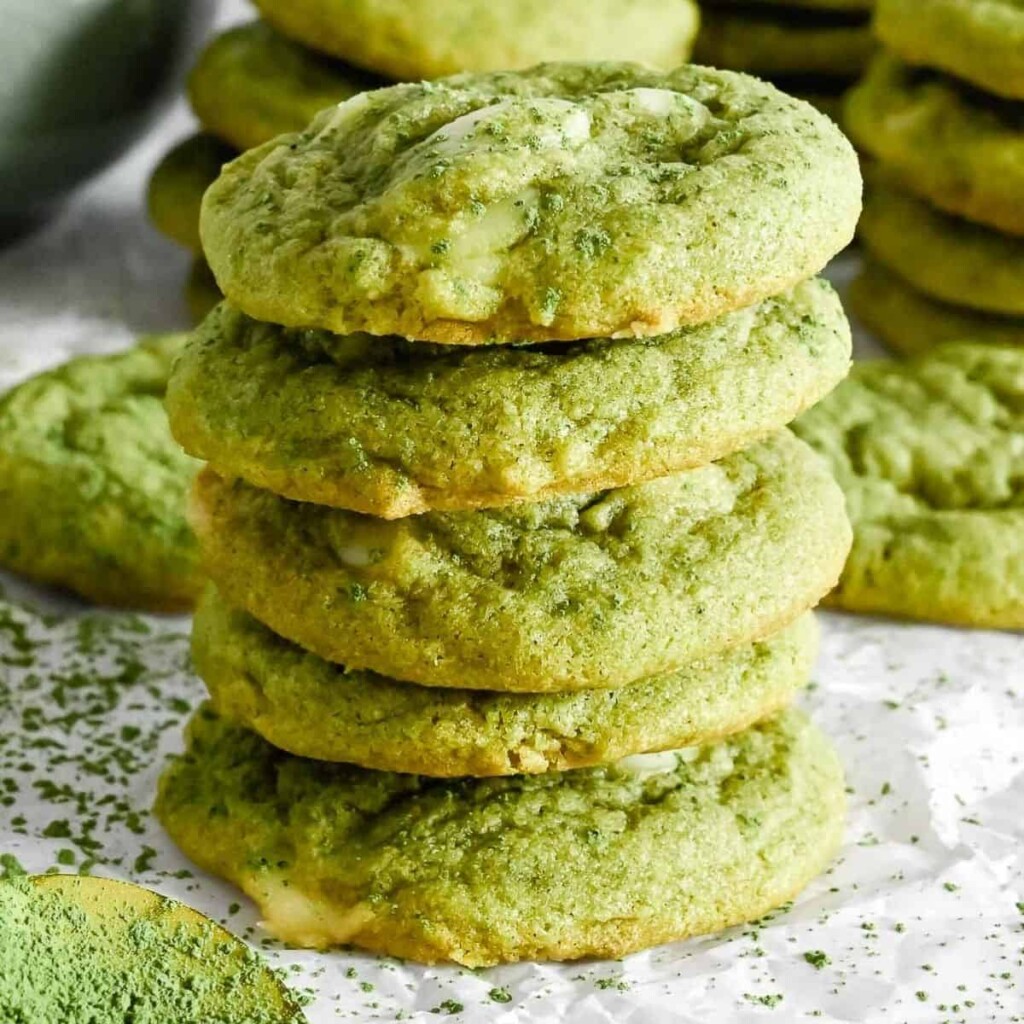These days, it feels impossible to not be stressed. Between our daily lives and the increasingly negative media reports, settling our nerves can feel unachievable. But, we know stress can harm our brains and our bodies. And stress can also increase our risk of heart disease and depression. So finding solutions to de-stress is extremely important. However, when you’re living life, finding time for a spa day or beach vacation can be tricky. Luckily, most people can make time for a snack. And some snacks can help alleviate that stress. That’s a win-win. Reading through this list will make you hungry. So get ready to head to the supermarket, fill your tummy, and taste your troubles slipping away. Here are some foods and drinks to relax your shoulders and instantly take you to your happy place.

Matcha Cookies
In a study over 15 days, 36 people ate cookies containing 4.5 grams of matcha powder every day. They found a decrease in the stress marker, salivary alpha-amylase, compared with the placebo group. Matcha is a vibrant green powder derived from specific green tea leaves grown in the shade. It is popular among health enthusiasts because it has a lot of L-theanine, a non-protein amino acid with intense stress-relieving properties. Matcha is actually a better source of this amino acid than other types of green tea because the growing process increases the content of L-theanine, among other compounds. Human and animal studies alike have proved that matcha may reduce stress if the L-theanine content of the powder is high enough and the caffeine content is low.
